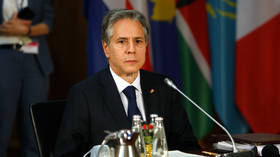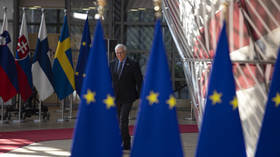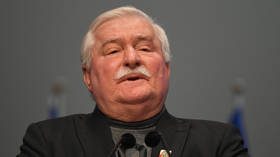US comments on ‘challenges’ to world order

The ongoing conflict between Moscow and Kiev could threaten the existing world order, US Secretary of State Antony Blinken told the Thai public broadcaster on Monday. According to Blinken, Russia “challenges” what he called the “rules-based” world order and would create a new reality in the international arena if allowed to achieve its goals in Ukraine.
The existing international rules are based on “basic understandings,” Blinken said, arguing that “respect for sovereignty, for independence, for territorial integrity, for human rights” are the foundations of the order centered around the UN.
Russia’s “aggression against Ukraine” challenges all of that, Blinken said. “If Russia is allowed to do what it’s doing, that means that we’re going to go back to a world in which might makes right, in which big nations can bully small nations,” which would be “the opposite of the rules-based order,” he added.
In addition to Moscow acting as the international troublemaker, Blinken said Beijing is “posing a challenge to the order in the way that it acts with increasing aggression in the region, and with increasing repression at home.” He did not explain what exactly he meant by China’s “aggression.”
At the same time, Blinken called US relations with China “one of the most consequential relationships, one of the most complex relationships,” adding that Washington still hopes to “find ways to cooperate” with Beijing despite “competition” between the two nations.
Russia sent troops into Ukraine on February 24, citing Kiev’s failure to implement the Minsk agreements, designed to give the regions of Donetsk and Lugansk special status within the Ukrainian state. The protocols, brokered by Germany and France, were first signed in 2014. Former Ukrainian president Petro Poroshenko has since admitted that Kiev’s main goal was to use the ceasefire to buy time and “create powerful armed forces.”
In February 2022, the Kremlin recognized the Donbass republics as independent states and demanded that Ukraine officially declare itself a neutral country that will never join any Western military bloc. Kiev insists the Russian offensive was completely unprovoked.














